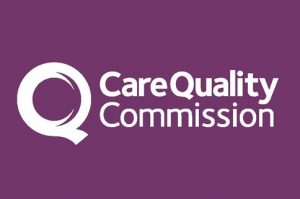
By Susan Gately - 24 December, 2016
 The Care Quality Commission (CQC) has released a damning report detailing the abuses and failures in the abortion facilities of Marie Stopes International (MSI), the independent sector group that performs over a third (70,000) of all abortions in the UK.
The Care Quality Commission (CQC) has released a damning report detailing the abuses and failures in the abortion facilities of Marie Stopes International (MSI), the independent sector group that performs over a third (70,000) of all abortions in the UK.
The initial public notification of the CQC findings in August led to the suspension of not only all their surgical abortions, but also all ‘medical’ abortions for young people and children, as well as those with learning impairments.
The 50-page report published on 20 December 2016 found there was a lack of oversight and training, potentially putting women at risk. The report, presented by Professor Sir Mike Richards, Chief Inspector of Hospitals, found a “lack of oversight” in the signing of permission slips for abortion. UK law states that two clinicians must sign the forms, based on their assessment of the woman’s mental and physical condition.
The CQC found that in two centres, clinicians were signing piles of between 30 and 60 permission slips at a time. The report added: “We were informed by doctors that HSA1 forms were being signed on the basis of the ‘reason for termination’ information only, which was printed or handwritten on the back of the form. We were not assured clinicians had access to all patient information.”
Reacting to the report, Bernadette Smyth, Director of Northern Ireland’s pro life agency, Precious Life, said the report showed that women were being deceived and exploited by Marie Stopes International and “their unborn babies are routinely destroyed”.
Ms Smyth said that no one knew what was going on in the Marie Stopes clinic in Belfast. She noted that when the clinic opened in 2012, its representatives said they would work closely with the North’s Regulation and Quality Improvement Authority (RQIA). When surgical abortions were suspended in Marie Stopes Clinics after the initial report of the CQC in August 2016, Precious Life wrote to the RQIA requesting them to inspect the Marie Stopes clinic in Belfast. In its response, the RQIA said that it was awaiting the findings of the CQC’s report.
 “Now that the CQC’s findings have been released, we are calling on the RQIA to take action. In the interests of protecting women and their unborn children, we are calling on the RQIA to ensure that women from Northern Ireland are not being referred to Marie Stopes in England or elsewhere to have abortions. Women deserve better than abortion.”
“Now that the CQC’s findings have been released, we are calling on the RQIA to take action. In the interests of protecting women and their unborn children, we are calling on the RQIA to ensure that women from Northern Ireland are not being referred to Marie Stopes in England or elsewhere to have abortions. Women deserve better than abortion.”
In its recent report, the CQC expressed its concern that abortifacient drugs were, in some cases, being handed out without the approval of two clinicians. Marie Stopes claimed that this only happened in five per cent of cases.
Two stories raised particular concern: at one centre, a new treatment was introduced without notifying the patient of the risks. The inspectors also observed a woman with a learning disability being given an abortion: “Consent to treatment for this patient was not carried out in a way they could understand and we observed the situation was poorly and insensitively handled by doctors.”
The report also raised concerns about adherence to basic standards. It found that Marie Stopes were not ensuring that the senior team were competent – a duty required by law. Nearly a fifth of staff lacked up-to-date safeguarding training, and there was “poor” monitoring and risk management over whether patients had given informed consent.
The CQC have made 14 principal recommendations to Marie Stopes, mainly relating to better oversight and implementation of standards. It said there should be “effective processes” to ensure that permission slips are signed in accordance with the law.